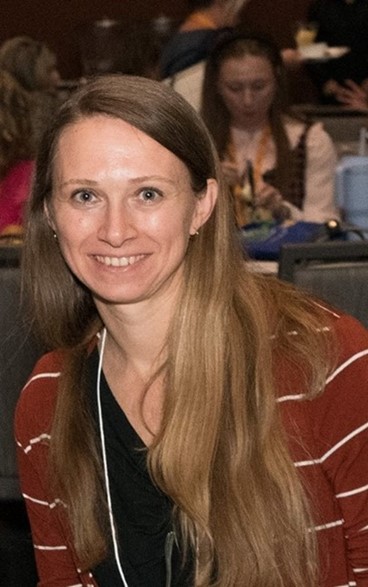<<< Back to October 2023 Newsletter
 |
VALERIE WILLIAMS is a Family and Consumer Sciences Education Consultant for the Office of Career and Technical Education (CTE) at the NC Department of Public Instruction. Family and Consumer Sciences is an interdisciplinary field that explores basic human needs, individual well-being, family strengths, community vitality, and their interrelationships. Valerie is passionate about CTE programs and believes they help students develop technical, academic, and workforce skills that can be applied to employment or additional post-secondary education. As demands in the workforce have increased, particularly the need for early childhood educators, there has been a greater understanding and focus for employees with practical knowledge and skills. Valerie believes that Family and Consumer Sciences is the workforce behind the workforce. |
Please highlight your background and how you came to CTE. Were you always going to go into education?
I always wanted to be a teacher. When I was in school, I loved my Family and Consumer Education classes and my favorite was my Child Development classes. I kind of knew what I was getting into since my mother had been a high school teacher. I thought I would get to teach high schoolers and be able to interact with the little kids, too. I thought it was the best of both worlds, clearly my sweet spot. There were six or seven of us at Appalachian State University who earned a Degree in Career and Technical Education - Family and Consumer Sciences Education.
Can you briefly discuss Career and Technical Education (CTE) and its work toward credentials/certificates in ECE?
We have a big world of careers out there, and most can start in Career and Technical Education. It is a stepping stone that leads to employment and education. It is unfortunate that people have old ideas of vocational education. Most people don’t know that North Carolina has a rich Career and Technical Education Program. It is so important to understand the program.
When students finish the CTE program in early childhood, what is their next step to becoming a teacher? Can students enrolled in early childhood classes become apprentices?
The CTE curriculum aligns with the North Carolina Lead Teacher Credential. We just signed a MOA (Memorandum of Agreement) with DCDEE and that is why we re-structured the curriculum. The Credential is a stepping stone to an AA degree and a BA degree if students want to be a lead teacher in a NC Pre-K classroom, and they can continue their education in NC through the T.E.A.C.H. scholarship program. CTE students do have an internship in a classroom. Pre-apprenticeships and apprenticeships in the early childhood field in NC are relatively new. We do have some pre-apprentices in the CTE program and that is continuing to grow.
What is the strongest piece of the early childhood CTE program or curriculum?
I am committed to the success of the Career and Consumer Education Program. I think the strongest piece is the internship opportunity for the students. It is a required two-credit course, and one credit is actually being in the early childhood classroom at a child care center. Hands down, that time in the classroom is one of the best experiences. It is a good period of growth. A student might even have a wonderful internship and the following year become an apprentice in a center, already having some experience. Internships, pre-apprenticeships, and apprenticeships allow ECE centers to begin recruiting and training new teachers earlier in the workforce development timeline.
Do all high schools in NC have the CTE program in early childhood?
The CTE in Child Development/Early Childhood Education is in approximately 110 high schools in North Carolina, in about 50 counties. The numbers in the program were beginning to grow last year. Across the state, there are almost 17,000 students taking the Child Development class, up from approximately 15,000 last year. There are about 2,000 students taking the Early Childhood Education I class. These numbers are important as we address our current workforce crisis and encourage interested students as they plan for their future.
If money were no object, what change would you make to the program?
If money were no object, I would like all high schools to have a child care center on campus. Not just a classroom, but multiple classrooms. They could be part of the high school or run by a child care program by contract. The point of having multiple classrooms is so the students could gain experience by working with different age groups. Having a program at the high school could be a benefit for employees who have young children as well as the students who want to work in this field.
What do you want others to know about the importance of CTE as it relates to the ECE workforce?
I want people to know we are out here in the high schools working with students who are eager to learn. We have good, strong programs, excellent curriculum, and amazing teachers! Our programs open opportunities for youth. CTE programs can be helpful to the growing ECE field by developing technical, academic and workforce skills.
October 2023 Newsletter Article